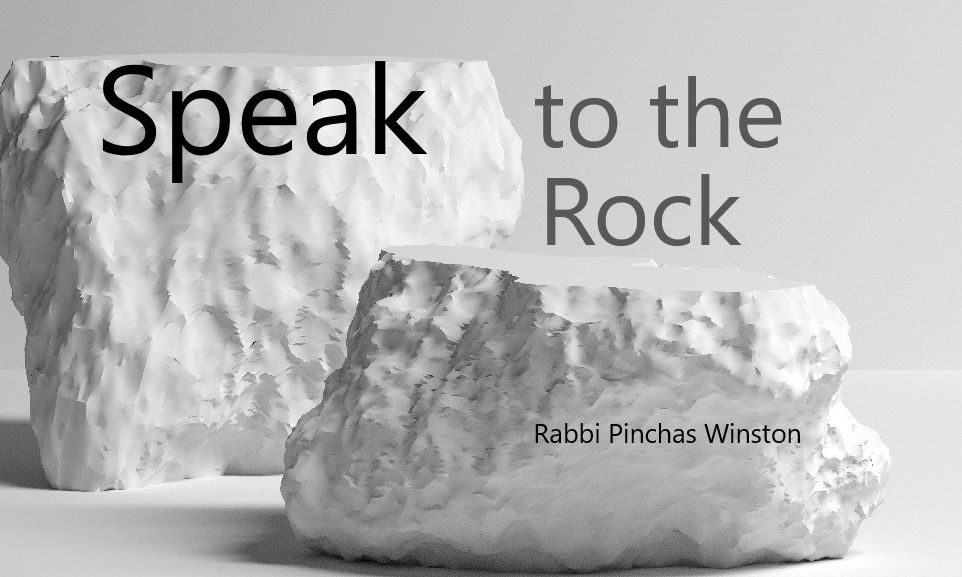
Chukat: Speak to the Rock
Hashem commanded Moses to speak to the rock. Yet under duress, when the entire nation complained bitterly, Moses hit the rock. Why was Moses punished so harshly?

One of the most tragic incidents in the Chumash is the story of Mei Merivah, where Moshe hit the rock he was told to speak to, and was therefore denied access to Eretz Yisroel. However, in the Torah itself, the account is very short and the mistake is quite subtle. It is really only the magnitude of the Divine punishment that opens our eyes to just how major a turning point in Jewish history this event was.
The question is, why? In spite of Moshe’s failure to properly execute the will of G-d, was it so bad? Why did G-d take Moshe, and the entire Jewish nation for that matter, to task for so subtle an error? A deep analysis of the verses, through the eyes of the Zohar and other holy books, reveals the acute importance of what occurred at Mei Merivah.
The Torah writes:
:ז וַיְדַבֵּ֥ר יְהֹוָ֖ה אֶל־משֶׁ֥ה לֵּאמֹֽר
ח קַ֣ח אֶת־הַמַּטֶּ֗ה וְהַקְהֵ֤ל אֶת־הָֽעֵדָה֙ אַתָּה֙ וְאַֽהֲרֹ֣ן אָחִ֔יךָ וְדִבַּרְתֶּ֧ם אֶל־הַסֶּ֛לַע לְעֵֽינֵיהֶ֖ם וְנָתַ֣ן מֵימָ֑יו וְהֽוֹצֵאתָ֙ לָהֶ֥ם מַ֨יִם֙ מִן־הַסֶּ֔לַע וְהִשְׁקִיתָ֥ אֶת־הָֽעֵדָ֖ה וְאֶת־בְּעִירָֽם
And G-d spoke to Moshe, saying, “Take the staff and gather the Assembly, you and Aharon your brother, and speak to the rock (selah) before their eyes and give from its waters; bring forth water from the rock to give water to the Assembly and their animals.” (Bamidbar 20:7-8)
This was not the first time that Moshe had been asked to bring forth water from a rock. The first time he had done so had been back before the giving of Torah, as the Torah records:
:ה וַיֹּ֨אמֶר יְהֹוָ֜ה אֶל־משֶׁ֗ה עֲבֹר֙ לִפְנֵ֣י הָעָ֔ם וְקַ֥ח אִתְּךָ֖ מִזִּקְנֵ֣י יִשְׂרָאֵ֑ל וּמַטְּךָ֗ אֲשֶׁ֨ר הִכִּ֤יתָ בּוֹ֙ אֶת־הַיְאֹ֔ר קַ֥ח בְּיָֽדְךָ֖ וְהָלָֽכְתָּ
:ו הִנְנִ֣י עֹמֵד֩ לְפָנֶ֨יךָ שָּׁ֥ם | עַל־הַצּוּר֘ בְּחֹרֵב֒ וְהִכִּ֣יתָ בַצּ֗וּר וְיָֽצְא֥וּ מִמֶּ֛נּוּ מַ֖יִם וְשָׁתָ֣ה הָעָ֑ם וַיַּ֤עַשׂ כֵּן֙ משֶׁ֔ה לְעֵינֵ֖י זִקְנֵ֥י יִשְׂרָאֵֽל
G-d told Moshe, “Pass before the people and take with you from the Elders of Israel, and your staff with which you hit the river; take it in your hand and go. Behold, I will stand before you there on the rock at Chorev and you shall hit the rock (tzur) so that water will come out from it and the people will drink …” (Shemot 17:5-6)
It is the nuances of difference between the first episode and the second episode that allude to profound differences between what was to have occurred with the rock before the giving of Torah, and what was to occur 40 years later, long after the Torah had been given to the Jewish people. However, even before analyzing such differences, one must first have an appreciation of the rock itself, and the unique water it produced.
For this, another introduction is necessary.
Allegorically, we have no difficulty comparing water and light, both being crucial to life physically and spiritually. However, it is not as easy to conceive of light being the source of water, or anything physical for that matter (though we believe that G-d, who works through light, created everything in the physical world).
The word “bracha” means “blessing”, which is often viewed as a spiritual means to a physical end. The actual source of the word is “breicha,” which means “spring”, as in a flowing body of water. This is to signify that blessing is like a flowing body of water between G-d and the recipient of His blessing, or light.
Hence, just as in the case of existence, which was created ex nihilo, as “something from nothing”, our physical blessing also emanates from “nothing,” relatively speaking. Creation did not come from absolutely nothing, but from a level of light so sublime that, compared to what it created, it was as if it didn’t exist; but exist it did in the most ultimate sense. So too does our physical blessing emanate from a similar light, which, compared to what it produces in the physical, appears as nothing, when in fact, it is the real something.
Following this train of thought, one can better appreciate that what miraculously spilled forth from the rock in the desert for 40 years as the Jewish people traveled towards their final destination wasn’t simply water, but both bracha and breicha. It was “breicha” that flowed forth from the rock and which quenched their physical thirst; it was “bracha” that simultaneously quenched their spiritual thirst, for:
:א וַ֠יִּסְע֠וּ כָּל־עֲדַ֨ת בְּנֵֽי־יִשְׂרָאֵ֧ל מִמִּדְבַּר־סִ֛ין לְמַסְעֵיהֶ֖ם עַל־פִּ֣י יְהֹוָ֑ה וַיַּֽחֲנוּ֙ בִּרְפִידִ֔ים וְאֵ֥ין מַ֖יִם לִשְׁתֹּ֥ת הָעָֽם
The entire people traveled from the Sin Desert on the word of God, and they camped in Refidim; there was no water for the people to drink. The people argued with Moshe, and they said, “Give us water so we can drink!” (Shemot 17:1)
There is no water except Torah. (Baba Kamma 82a)
Rav Tzaddok explains the water that came in the merit of Miriam through the roving well had the quality of causing Torah Sh’b’al Peh (Oral Law) to become engraved on the hearts of the Jewish people. The manna that had fallen from heaven caused Torah Sh’b’k’sav, the Written Law, to become spiritually ingested, while the well’s water did the same on the level of the Oral Law (Pri Tzaddik, Chukas, 15).
Hence, what for us today may be a dual experience (drinking water to fulfill our physical needs, and learning Torah to do the same for our spiritual needs), during the 40 years in the desert, the average Jew accomplished both in a single act.
Having said this, the verses more readily reveal the story behind the story of what was one of the most important turning points in the history of the Jewish people.
* * *
:ז וַיְדַבֵּ֥ר יְהֹוָ֖ה אֶל־משֶׁ֥ה לֵּאמֹֽר
“And G-d said (vay’dabehr) to Moshe, saying …” (Bamidbar 20:7)
By the tzur it said it only said, “And G-d said to Moshe (vayomer) …” The Talmud Yerushalmi (Makkos 2:6) says that anytime “dibur” is used it means the verse is about to say something new. Here, by the selah, they were about to see something they had never seen before, and to hear something they had never heard before: through this wondrous event the world was about to be completely rectified!
ח קַ֣ח אֶת־הַמַּטֶּ֗ה וְהַקְהֵ֤ל אֶת־הָֽעֵדָה֙ אַתָּה֙ וְאַֽהֲרֹ֣ן אָחִ֔יךָ וְדִבַּרְתֶּ֧ם אֶל־הַסֶּ֛לַע לְעֵֽינֵיהֶ֖ם וְנָתַ֣ן מֵימָ֑יו וְהֽוֹצֵאתָ֙ לָהֶ֥ם מַ֨יִם֙ מִן־הַסֶּ֔לַע וְהִשְׁקִיתָ֥ אֶת־הָֽעֵדָ֖ה וְאֶת־בְּעִירָֽם
“Take the staff …” (Bamidbar 20:8)
It only says the “staff” (whereas by the tzur it said, “your staff”; Shemot 17:5), which refers to the Staff of G-d which had the Holy Name engraved on it (Zohar 2:6b).
ח קַ֣ח אֶת־הַמַּטֶּ֗ה וְהַקְהֵ֤ל אֶת־הָֽעֵדָה֙ אַתָּה֙ וְאַֽהֲרֹ֣ן אָחִ֔יךָ וְדִבַּרְתֶּ֧ם אֶל־הַסֶּ֛לַע לְעֵֽינֵיהֶ֖ם וְנָתַ֣ן מֵימָ֑יו וְהֽוֹצֵאתָ֙ לָהֶ֥ם מַ֨יִם֙ מִן־הַסֶּ֔לַע וְהִשְׁקִיתָ֥ אֶת־הָֽעֵדָ֖ה וְאֶת־בְּעִירָֽם
“Gather the assembly …” (Bamidbar 20:8)
The entire people, because this was a new generation (throughout the 39 years after the spies, the previous generation had died out) on a far higher spiritual level of that of the Tree of Life. Their parents had been from the level equated with the Tree of Knowledge of Good and Evil, which is why G-d told Moshe to gather only the elders (that is, the Sanhedrin), the first time by the tzur.
ח קַ֣ח אֶת־הַמַּטֶּ֗ה וְהַקְהֵ֤ל אֶת־הָֽעֵדָה֙ אַתָּה֙ וְאַֽהֲרֹ֣ן אָחִ֔יךָ וְדִבַּרְתֶּ֧ם אֶל־הַסֶּ֛לַע לְעֵֽינֵיהֶ֖ם וְנָתַ֣ן מֵימָ֑יו וְהֽוֹצֵאתָ֙ לָהֶ֥ם מַ֨יִם֙ מִן־הַסֶּ֔לַע וְהִשְׁקִיתָ֥ אֶת־הָֽעֵדָ֖ה וְאֶת־בְּעִירָֽם
“You and your brother Aharon …”
Aharon was not included the first time, but is included here for Kabballistic reasons.
ח קַ֣ח אֶת־הַמַּטֶּ֗ה וְהַקְהֵ֤ל אֶת־הָֽעֵדָה֙ אַתָּה֙ וְאַֽהֲרֹ֣ן אָחִ֔יךָ וְדִבַּרְתֶּ֧ם אֶל־הַסֶּ֛לַע לְעֵֽינֵיהֶ֖ם וְנָתַ֣ן מֵימָ֑יו וְהֽוֹצֵאתָ֙ לָהֶ֥ם מַ֨יִם֙ מִן־הַסֶּ֔לַע וְהִשְׁקִיתָ֥ אֶת־הָֽעֵדָ֖ה וְאֶת־בְּעִירָֽם
“Speak to the rock …”
The Shechina dwelled in their mouths in the form of Torah Sh’b’al Peh (Oral Torah) which they had been learning over the forty years. Therefore, in the merit of their Torah learning the Light came down and dwelled on the selah, which is why only speech was necessary now, like a prince who requests from his father the king (Zohar, R”M Taitzai, 279b). As well, Miriam’s death had also atone for the sin of the golden calf to a large degree.
(In the case of the tzur, the nation had yet to reach such a high level, though they had been in need of a great miracle in terms of the water. Hitting the rock was a way to do this and to counteract the spiritual imbalance at that time. In fact, “tzur” is the name used to indicate that the rock itself had yet to become transformed to a higher spiritual level, indicated by the word “selah” used 40 years later.)
Had Moshe spoken to the rock to bring out the water, then the Light that was in the hand of Moshe would have emanated and become revealed; the light of the Shechina would have dwelled on the entire nation elevating them to the level of the Tree of Life, bringing completion rectification and the ultimate unification. The light of the Ohr HaGanuz would have flowed to them from the “well”…
ח קַ֣ח אֶת־הַמַּטֶּ֗ה וְהַקְהֵ֤ל אֶת־הָֽעֵדָה֙ אַתָּה֙ וְאַֽהֲרֹ֣ן אָחִ֔יךָ וְדִבַּרְתֶּ֧ם אֶל־הַסֶּ֛לַע לְעֵֽינֵיהֶ֖ם וְנָתַ֣ן מֵימָ֑יו וְהֽוֹצֵאתָ֙ לָהֶ֥ם מַ֨יִם֙ מִן־הַסֶּ֔לַע וְהִשְׁקִיתָ֥ אֶת־הָֽעֵדָ֖ה וְאֶת־בְּעִירָֽם
“Before their eyes …”
This is what was so fantastically new. At Har Sinai, when anyone looked at the Shechina, they became punishable by death. But not, after having risen in spiritual stature, they were going to be allowed to witness the Shechina on the Selah!
What went wrong?
The main reason was that Moshe had seen the Shechina depart from the selah (Sefer Tziyoni, Rabbeinu Yehudah Chassid). He had seen the Shechina by the rock from the distance, and that’s why he gathered the people there. However, once he approached the selah, the Shechina had departed; he did not know what to do at that point.
It could be that the Shechina had departed because it had been G-d’s desire to bring water from any rock they had chosen. Whatever rock Moshe would have decided upon, it would have been upon that rock that the Shechina would have dwelled. The Shechina, so-to-speak, was simply in waiting for Moshe’s word before performing the miracle. That would have been a tremendous sanctification of G-d’s Name.
However, Moshe had assumed otherwise, thinking that the leaving of the Shechina was a bad sign, especially since groups had formed to complain. This is why the parsha makes another subtle change: first Moshe gathered together the entire “Assembly” (eidah) which usually means the Sanhedrin, alluding to the greatness of all the Jews. After they are referred to only as a “kahal,” a lower level of the same idea.
This is why Moshe says, “Listen, you rebels …” as if to say, “See what you have caused through your complaining! The Shechina has departed on your account! Are we able to draw water out from a rock if the Light is not on it?!” This is why:
:יא וַיָּ֨רֶם משֶׁ֜ה אֶת־יָד֗וֹ וַיַּ֧ךְ אֶת־הַסֶּ֛לַע בְּמַטֵּ֖הוּ פַּֽעֲמָ֑יִם וַיֵּֽצְאוּ֙ מַ֣יִם רַבִּ֔ים וַתֵּ֥שְׁתְּ הָֽעֵדָ֖ה וּבְעִירָֽם
Moshe lifted his hand and struck the rock with his staff … (Bamidbar 20:11)
Every “lifting of the hand” for the sake of Heaven is a major rectification to draw down holy Light and to elevate the world [from the level of the Tree of Knowledge of Good and Evil to the level of the Tree of Life]. (Zohar, Parashat Yitro)
The truth is, even after Moshe had doubted the level of the nation gathering before him, his doubt was reduced when he saw another miracle happen. According to the midrash (Bamidbar Rabbah 9), the entire nation was able to fill a tiny space without difficulty, and that confirmed to Moshe that the Shechina was still amongst them. However, he did still sense somewhat of a change from the ideal situation, and sought to rectify it by hitting the rock.
In the end, Moshe’s misunderstanding of G-d’s intention resulted in just the opposite of what he intended. Even the water that eventually came out was less holy than it was supposed to have been (after the first hit, blood emerged, and after the second hit, water finally emerged).
Subsequently, hitting the rock and lowering its level (and the staff’s) resulted in his failure to enter the land he dreamed of settling. More importantly, it greatly reduced the revelation of G-d’s presence in creation and the eternal spiritual rectification it was meant to cause:
יב וַיֹּ֣אמֶר יְהֹוָה֘ אֶל־משֶׁ֣ה וְאֶל־אַֽהֲרֹן֒ יַ֚עַן לֹא־הֶֽאֱמַנְתֶּ֣ם בִּ֔י לְהַ֨קְדִּישֵׁ֔נִי לְעֵינֵ֖י בְּנֵ֣י יִשְׂרָאֵ֑ל לָכֵ֗ן לֹ֤א תָבִ֨יאוּ֙ אֶת־הַקָּהָ֣ל הַזֶּ֔ה אֶל־הָאָ֖רֶץ אֲשֶׁר־נָתַ֥תִּי לָהֶֽם
“Because you did not believe in Me, to sanctify Me in the eyes of the children of Israel, therefore you will not bring this assembly (kahal) into the land which I have given them.” (Bamidbar 20:12)
However, had the people been worthy and appreciative of Moshe Rabbeinu, and the spiritual opportunity he had presented; had they recognized the crucial turning point in history the moment represented, Moshe’s misunderstanding would never have occurred. That is a story unto itself.





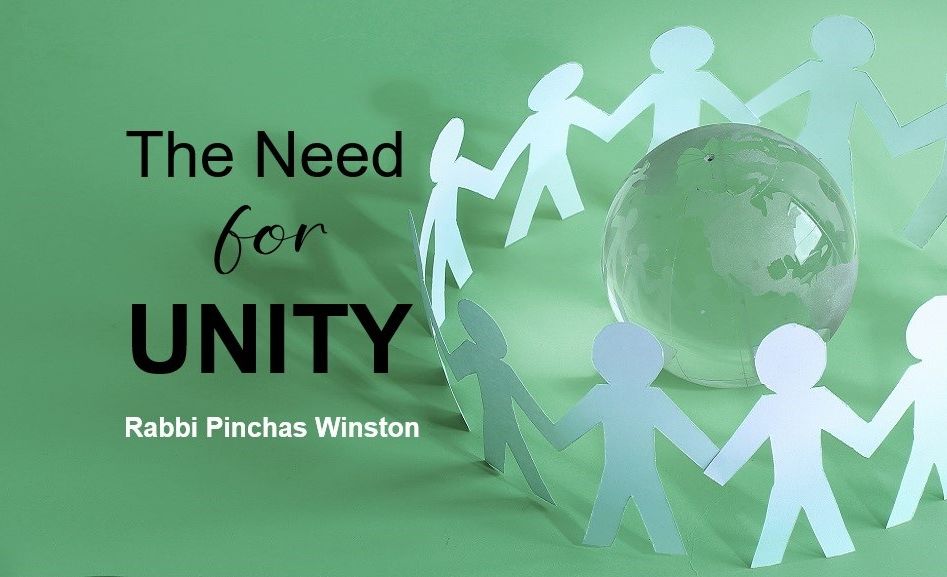

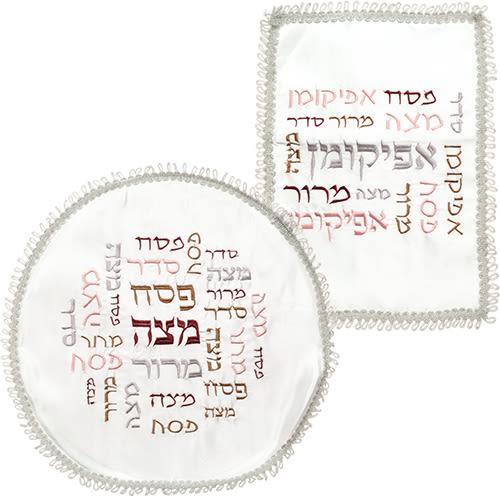
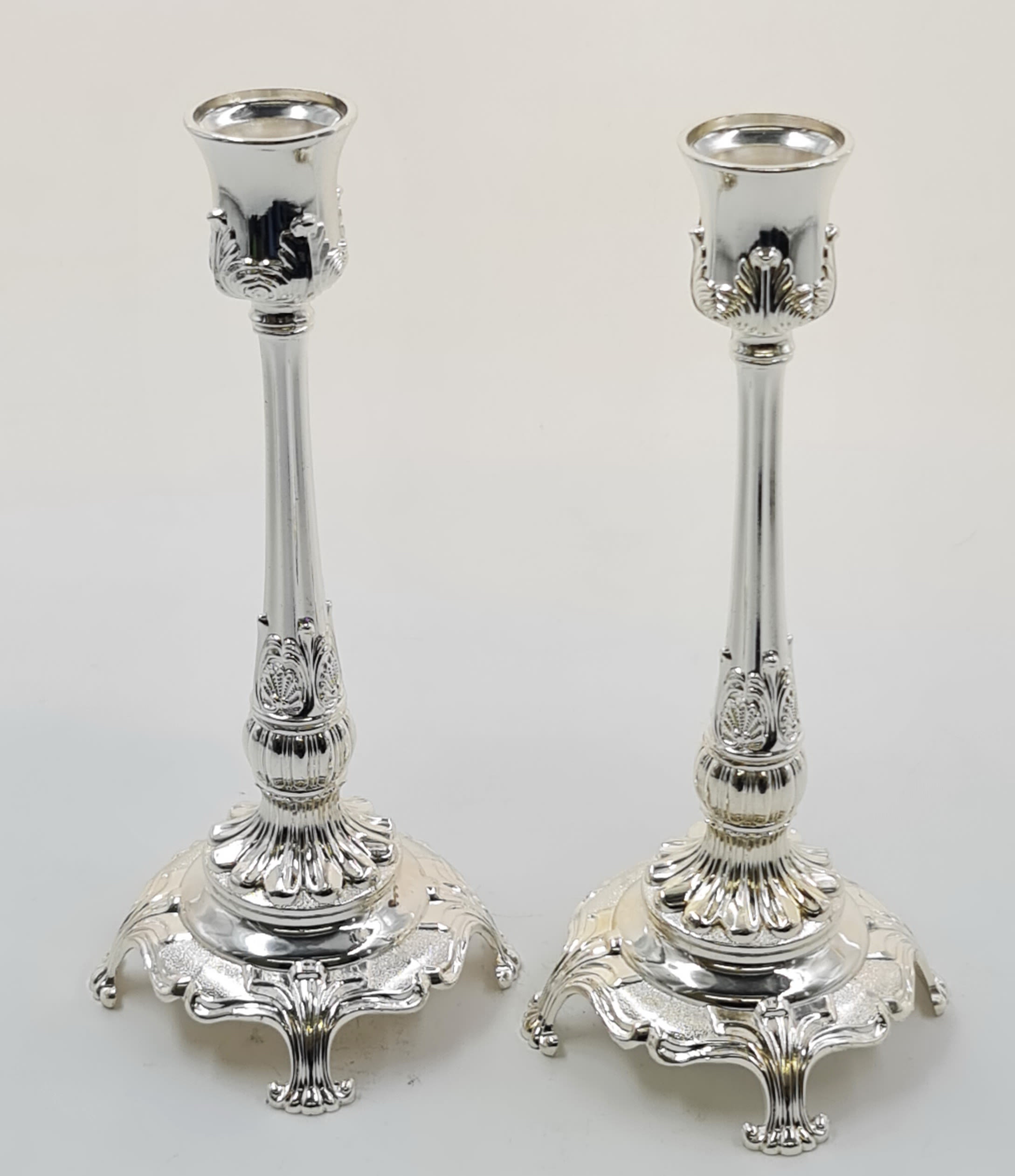
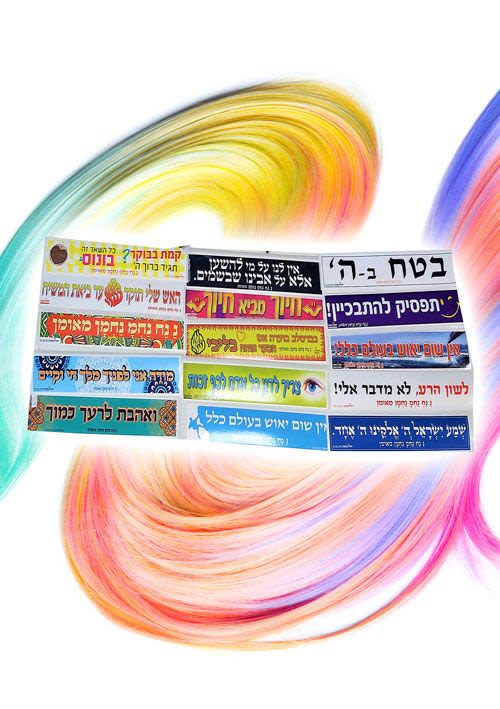
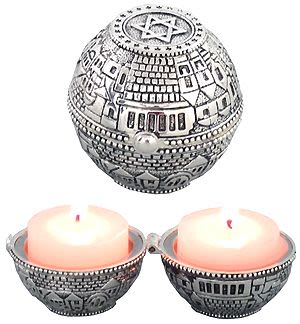
Tell us what you think!
Thank you for your comment!
It will be published after approval by the Editor.